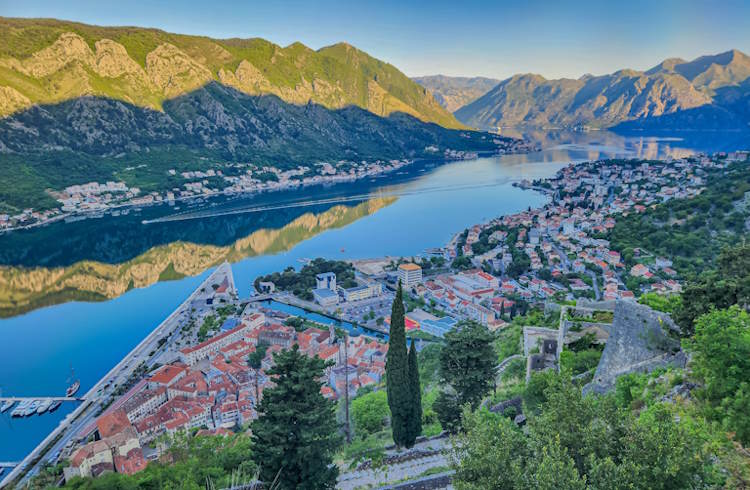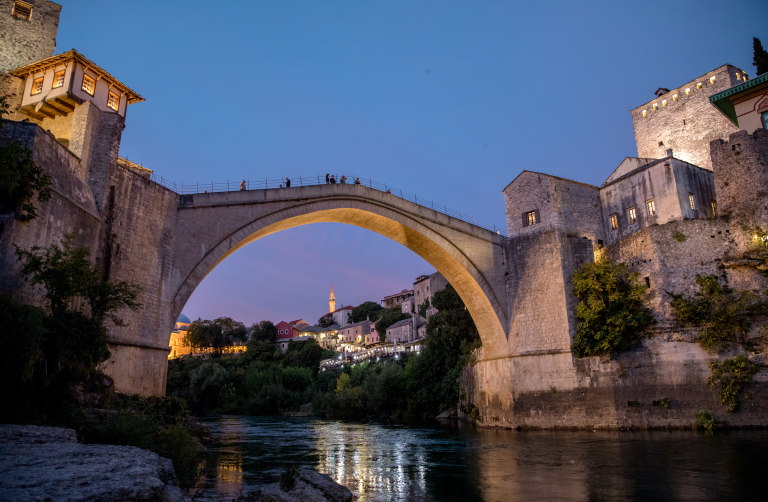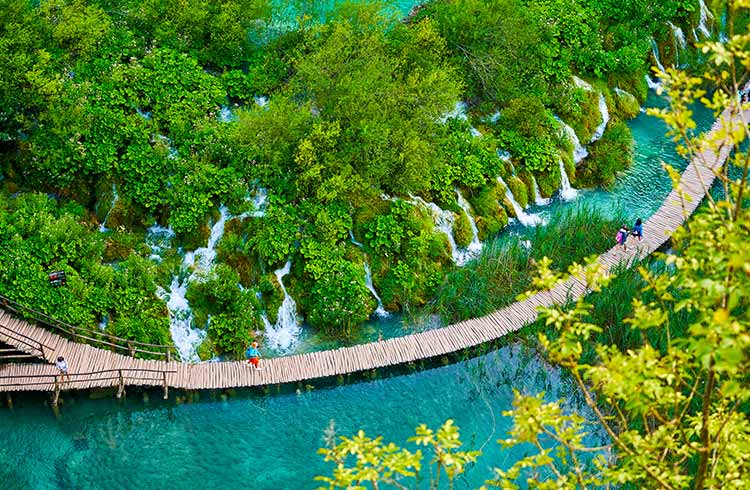Is Montenegro Safe to Visit? Safety Tips for Travelers
Nestled between Croatia, Bosnia-Herzegovina, Serbia, and Albania you’ll find one of Europe’s safest destinations. Here's what you need to know to enjoy a trouble-free stay in Montenegro.
 Photo © Steve Tsentserensky
Photo © Steve Tsentserensky
Montenegro, or Crna Gora as it’s called locally, has become an increasingly popular spot for travelers, and for good reason. With incredible landscapes, rich cultural heritage, and classic Balkan charm, this country on the Adriatic coast packs a lot into a small area.
But is Montenegro safe?
The short answer is yes.
Montenegro is among Europe’s safest and most welcoming countries where you’ll have little to worry about aside from deciding how to fill your days.
- Safety in Montenegro: general tips
- Crime in Montenegro
- Petty crime and scams
- Emergency numbers to keep handy
- Traveler etiquette: How to dress, what not to say
- Nudity in Montenegro: Beachwear and the lack thereof
- Safety for female solo travelers
- Safety for LGBTQ+ travelers
Safety in Montenegro: general tips
Despite its well-earned reputation as a carefree country for travelers, no destination is entirely perfect, but having your wits about you and being attentive will cover just about everything.
- Stay alert: Be aware of your surroundings, particularly in tourist areas like Kotor, Tivat, and Budva
- Secure your stuff: Use a money belt or hidden pouch to keep your valuables safe
- Travel insurance: It's wise to consider a travel insurance policy that covers health, accidents, and theft
- Stay informed: Keep up to date with local and regional news (and weather reports)
- Travel light: When exploring, carry only what you need for the day
Crime in Montenegro
Montenegro is an extremely peaceful country, landing just below the UK on the Global Peace Index (and 97 spots ahead of the United States). Violent crime and homicides are almost non-existent, falling below the EU average, with the majority of crimes committed being traffic-related.
And this young Balkan country has a clear interest in keeping these figures low as tourism makes up nearly 30% of GDP.
Moreover, the few major crimes that are committed generally don't target tourists, so you’re almost certain to find nothing but warm, open arms as a visitor.
Petty crime and scams
Petty crimes, like pickpocketing and bag snatching, as well as scams, like exorbitant taxi or tour rates, are the most common threats to travelers in Montenegro.
While pickpocketing or getting a bag or phone stolen is uncommon, it can happen, mostly during peak season (June-August) in heavily trafficked areas like Kotor, Budva, Bar, and Herceg Novi.
Even in those high-traffic areas though, the likelihood of getting pickpocketed in Montenegro is far lower than in other European hotspots like Rome, Paris, or Amsterdam.
Common sense rules the day here. To avoid bag snatching and pickpockets:
- Keep your bags in front of you where you can see them
- Keep your phone off the table in crowded areas
- Carry minimal cash and valuables
As for taxis, know you’re a target for bogus pricing anywhere you’re a visitor and don’t speak the language. Since Uber and Bolt don’t work in Montenegro, taxis will be your best bet aside from trying your luck with the local ride-share apps.
To avoid taxi scams:
- Agree on pricing upfront
- Book transfers in advance
- Use reputable taxi companies
- Ensure the taxi has proper markings and a working meter
Emergency numbers to keep handy
If you have an emergency, here are the critical numbers to know in Montenegro:
- Emergency services: 112 (note: this is the European emergency number and will work in nearly all European countries)
- Police: 122
- Fire brigade: 123
- Medical emergency: 124
Traveler etiquette: How to dress, what not to say
Like the rest of the Balkans, society is oriented around more traditional values. Religion tends to intertwine with national identity and most of Montenegro’s population, roughly 72%, is Orthodox Christian. Owing to centuries of Ottoman rule, Muslims make up the largest religious minority at about 19%.
Being mindful and respectful of that goes a long way.
When visiting religious sites, like Ostrog Monastery built directly into a mountainside, modest clothing is a must; meaning knees, mid-section, and shoulders should be covered. The same goes for any other church or mosque you plan to visit – dress modestly.
When mixing with locals, know that Montenegrins are the salt of the earth and wonderful to spend time with over coffee or drinks (be careful with the rakija!). The one topic you’ll want to avoid, though, is politics. The same can be said for other countries in the region where complicated political situations and corruption can make for unpleasant conversations.
Nudity in Montenegro: Beachwear and the lack thereof
The Adriatic coast is blessed with stunning beaches and Montenegro’s in particular come with gorgeous mountains as the backdrop.
Is it ok to soak in those views au naturel, though?
Topless sunbathing is generally accepted on most Montenegro beaches. However, it's always best to err on the side of caution and avoid going completely topless in more conservative areas.
Fortunately, if you are clothing-averse, there are plenty of clothing-optional beaches and camps to enjoy, notably:
- Ada Bojana - An island retreat on the Albanian border
- Jaz Beach - Near Budva
- Njivice - Montenegro’s oldest naturist beach, a stone's throw from the Croatian border
Pro tip: “FKK” on beach signage or a map denotes a nude beach.
On the flip side, Montenegro also has beaches that cater to the conservative. In Ulcinj you’ll find the Adriatic’s only beach exclusively for hijab-wearing Muslim women.
When you finish up at the beach, nudist or otherwise, you’ll want to cover up adequately before heading back into town. Cities like Tivat have recently introduced restrictions on bathing suits in pedestrian areas, with fines of up to €1,000.
Safety for female solo travelers
Montenegro's reputation for safety absolutely extends to solo female travelers with travel groups like Solo Female Travelers and Travel Ladies ranking the country among the safest for women to explore solo.
Montenegrins are nothing if not hospitable. Exercising basic safety measures like not venturing down dark alleys or into deserted areas and respecting the culture is all you need.
Safety for LGBTQ+ travelers
Given that Montenegro is on the conservative side, it’s fair to wonder how LGBTQ+ travelers might be received.
Let’s look at some facts first. On the Rainbow Europe Map, an annual ranking of 49 European countries on their LGBTQ+ laws and policies, Montenegro is among the best-performing on the continent and certainly the best in the region, being the first non-EU country in the Balkans to legalize same-sex civil partnerships.
For LGBTQ+ travelers that means Montenegro is quite welcoming. Still, while you’re unlikely to face open hostility for your sexual orientation, PDA may attract some unwanted attention.
This is particularly true in more rural, traditional areas.
For added peace of mind, consider looking for LGBTQ-friendly places to stay on platforms like misterb&b.
Related articles
Simple and flexible travel insurance
You can buy at home or while traveling, and claim online from anywhere in the world. With 150+ adventure activities covered and 24/7 emergency assistance.
Get a quote

No Comments